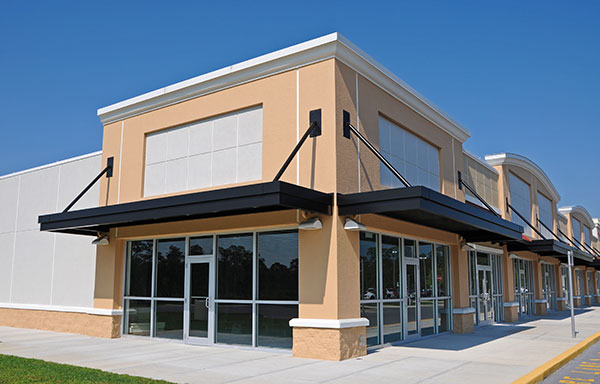The Concrete Roof: Should You Add It to Your Commercial Offerings?
Author: Barbara Horwitz-Bennett | June 14, 2023
Although your roofing clients may think of concrete and picture an ugly gray box, a concrete roof is a highly durable and attractive choice for commercial buildings. Here's what you need to know before offering this option to your commercial customers.

Advantages of a Concrete Roof
Concrete can mimic terra cotta tiles, slate and even wooden shakes with a variety of textures and edge designs. Tiles are available in a flat profile with no curves, a low profile with small curves or a high profile with large curves.
Unlike most asphalt, clay and metal roofs, concrete can withstand intense wind and rainstorms, and is not as susceptible to wind uplift. These qualities make it well suited for regions prone to extreme weather. In fact, Roofing Southwest reports that some concrete roofs can survive a Category 5 hurricane. Where buildings are located close together, concrete's fire resistance can help reduce the spread of fire between structures.
Depending upon the tile quality, thickness, installation difficulty and location, the average cost of a concrete roof installation is $10.50 to $13.50 per square foot, according to Roofing Calculator. While this is more expensive than some membrane options, concrete's longevity makes it a great life cycle choice. Some manufacturers offer warranties for as long as 50 years.
The Flip Side: Reinforcement and Weathering
A common knock on concrete is that it's a heavy material. For new construction where extra reinforcement can be added in the planning stage, this isn't much of an issue. For a client who wants to retrofit a new concrete roof to an existing structure, however, additional reinforcement might be required. A roofing contractor may need to partner with a welder or general contractor to shore up the building.
Since concrete requires different underlayment and waterproofing materials, knowing how to install it correctly is critical. Improper installation and poor workmanship can compromise a concrete roof's performance and longevity. If your business can't yet handle concrete reliably, you may need to bring in experienced independent contractors to complete a concrete roofing job.
Your clients should be warned that concrete can accumulate dirt, stains and debris more readily than other materials. Since a concrete roof is not resistant to moisture, the surface can also become a breeding ground for fungi and mildew. However, this can all be removed with professional tools like a pressure washer.
Finally, concrete has a tendency to fade over time from sun exposure, which means it might be tricky to match the color if individual tiles need to be replaced.
Before you offer concrete roofing options to your commercial clients, consider your own roofing team's expertise and the priorities of your potential customers. For the right applications and locale, concrete can be a great addition to a company's roofing portfolio.